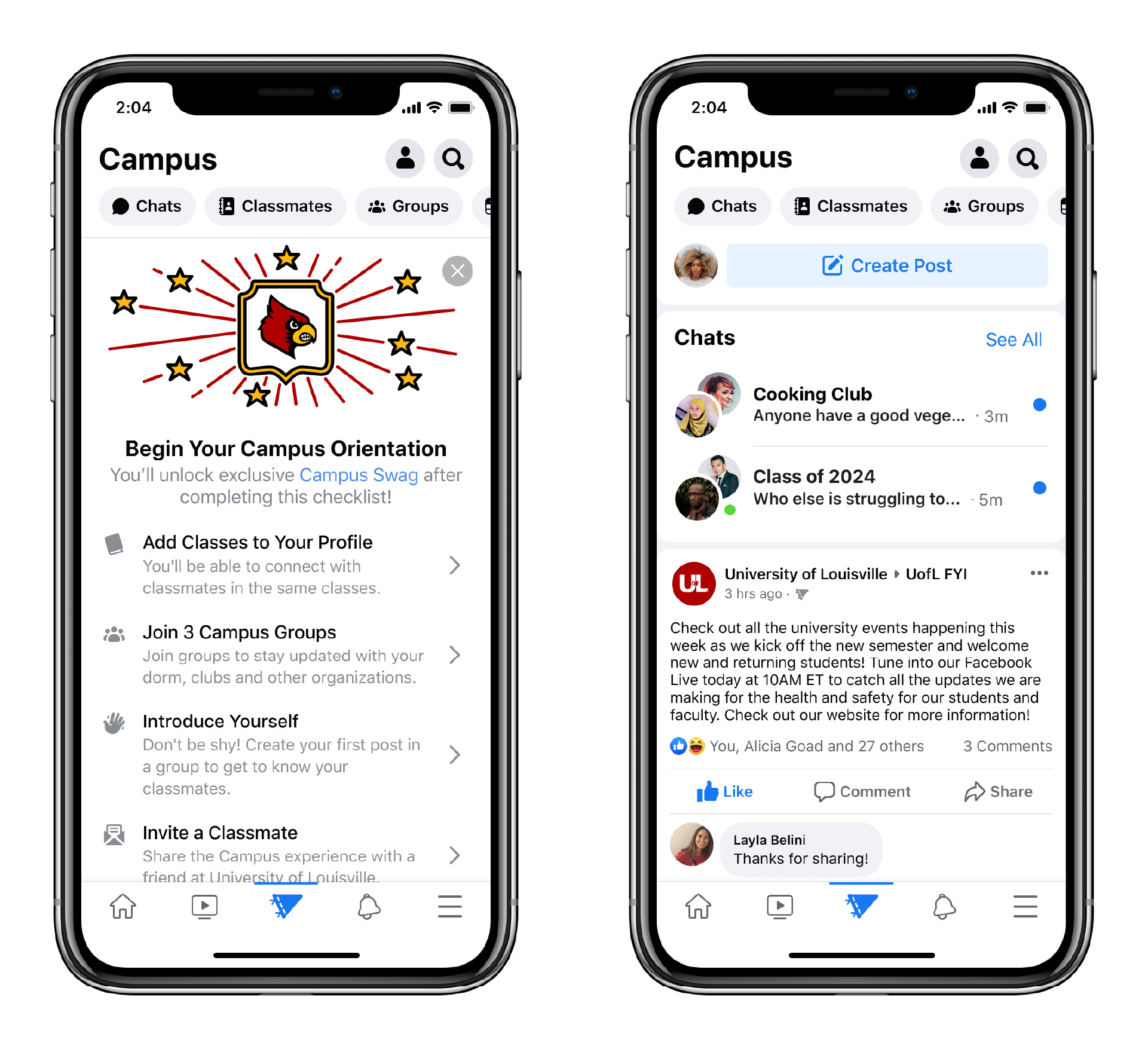
Facebook Launches “Campus” and Fires up the Déjà Vu
- Facebook is returning to its roots by introducing a college-friendly “Campus” section.
- This is basically a sub-platform of the social media that aims to bring students together.
- The first stage of the roll-out covers American schools, but more will be added later on.
Facebook has announced the launch of “Campus,” which is a college-only social media space designed to foster student connections. For a company that started as a social network experiment at Harvard College, this feels like a nostalgic look back to its roots.
In reality, it’s just an attempt to introduce a niche space inside that big thing that’s Facebook today, enabling people to find others with common interests easier. Sure, one could join university groups and pages and find classmates by digging around, but “Campus” is to take this to the next level.
As Facebook explains, users will be able to create a Campus profile that will be linked to their FB profile, but the two will remain separate. To create this profile, one would need to enter their college email and their graduation year. Optional information to be added there includes major, minor, classes taken, and hometown. Obviously, the more you add, the more likely it is for the algorithm to connect you with people with whom you share a lot.
Once the Campus profile is set up, the user will receive suggestions to join Groups and Events that can be either open or private. Some of these events are linked to user interests, like sports or concerts, but all of them are somehow related to their university.
Any content uploaded and shared on these special pages will only be visible to Campus users, so this will be a section of the platform exclusively available to them. This includes the “News Feed,” the “Directory,” and the “Chat” system.
Source: Facebook
The Campus News Feed is the place where all updates from classmates, users, groups, and even creators go. To help students find others based on their college, year, classes, and more, there is a Directory tool available.
The Campus Chats are real-time chat rooms that come with some privacy-minded visibility restrictions. Facebook hasn’t mentioned anything about encryption though on the dedicated post where it details the privacy aspect of Campus, so keep that in mind.
The roll-out of the new platform will start with the following educational institutes, but more will be added later. Hopefully, non-US-based universities will get Campus too, but this hasn’t been mentioned for now.
First colleges to be supported by Campus
- Benedict College
- Brown University
- California Institute of Technology
- College of William & Mary
- Duke University
- Florida International University
- Georgia Southern University
- Georgia State University
- Johns Hopkins University
- Lane College
- Lincoln University (Pennsylvania)
- Middlebury College
- New Jersey Institute of Technology
- Northwestern University
- Rice University
- Sarah Lawrence College
- Scripps College
- Smith College
- Spelman College
- Stephen F Austin State University
- Tufts University
- University at Albany
- State University of New York
- University of Hartford
- University of Louisville
- University of Pennsylvania
- University of Wisconsin-Eau Claire
- Vassar College
- Virginia Tech
- Wellesley College
- Wesleyan University.
Read More:
- WhatsApp Fixed Six Flaws That Facebook Says Are Nothing to Worry About
- “Forecast” App Is One of Facebook’s Most Interesting Experiments in 2020
- Facebook Launches “CatchUp” for Limited Internal Testing








